
Congenital pectus excavatum is often detected early in childhood, however, the severity varies greatly. In some children, the deformity only manifests as a mild indentation in the front of the chest, but in many severe cases, the sternum and costal cartilage are pulled deep inward, compressing the heart and lungs, causing fatigue, shortness of breath, and reduced mobility. If not treated early, this condition can worsen over time, affecting physical development and leaving lasting psychological distress.
To provide early intervention and give children the opportunity for comprehensive physical and mental development, Bai Chay Hospital is implementing the improved Nuss surgical method for treating congenital pectus excavatum, a provincial-level scientific research project of the hospital. According to Dr. Hoang Minh Tuan, Head of Quality Management Department (Bai Chay Hospital), the improved Nuss surgical method is a technique currently applied by many large centers domestically and internationally due to its safety and effectiveness. The surgery is performed endoscopically, placing one or two metal bars under the sternum to raise the sunken area to its normal position, helping the chest return to its natural shape. After about two years, when the bone structure has stabilized, the metal bars will be removed. The outstanding advantages of this method are that it is minimally invasive, does not require chest expansion like older techniques, reduces pain, and shortens recovery time. Both the aesthetic and functional benefits are excellent, helping children improve their breathing and circulation, and become more confident in their daily lives and studies.

Photo: Bai Chay Hospital
Bai Chay Hospital selects children for surgical intervention based on three main criteria: the degree of impact on respiratory and circulatory function; aesthetic factors; and psychological and social impact. Dr. Tuan stated that the age range of 6-12 is considered the "golden time" for surgery. This is the stage when the child's skeletal structure is still developing, making correction easier and yielding stable, long-term results. If surgery is delayed until later, when the bones have ossified, the effectiveness of the procedure will decrease.
As part of the research project, Bai Chay Hospital organized screening for congenital pectus excavatum (chest deformity) for over 1,500 children in various localities throughout the province, prioritizing children in remote areas and those from disadvantaged economic backgrounds. Cases detected with the deformity were placed on a surgical list or monitored periodically if the severity was mild. In the future, the hospital will continue to expand the pectus excavatum screening program throughout the province. Early screening not only facilitates timely intervention and leads to more effective treatment, but also contributes to raising awareness among students, parents, and teachers about the importance of early detection of congenital deformities.
Dr. Tuan shared: "We expect that in the future there will be more programs to continue and expand screening for other congenital defects so that children in Quang Ninh can be detected early and treated promptly, giving them a healthier and more confident future."
The research topic on the intervention of pectus excavatum in children using the improved Nuss surgical technique is not only scientifically significant but also demonstrates the innovative spirit of the medical team at Bai Chay Hospital in approaching and mastering modern techniques, while also carrying profound humanitarian value. Many children from disadvantaged backgrounds have received free surgery, helping them overcome their inferiority complex, improve their health, and confidently integrate into the community.
Source: https://baoquangninh.vn/benh-vien-bai-chay-can-thiep-som-di-tat-lom-nguc-cho-tre-em-3381048.html











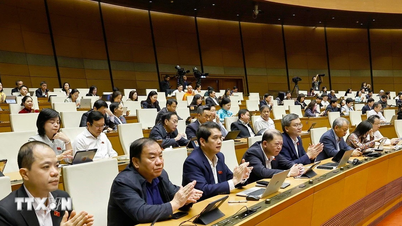



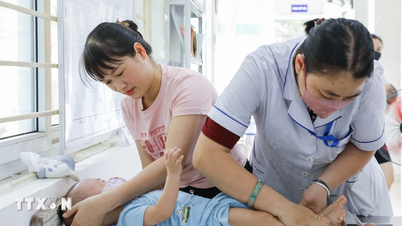

















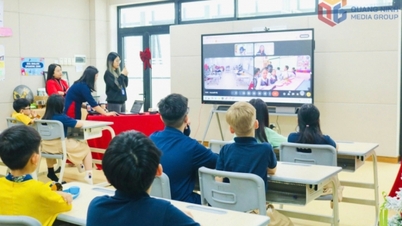

![[Photo] Prime Minister Pham Minh Chinh holds a phone call with the CEO of Russia's Rosatom Corporation.](/_next/image?url=https%3A%2F%2Fvphoto.vietnam.vn%2Fthumb%2F1200x675%2Fvietnam%2Fresource%2FIMAGE%2F2025%2F12%2F11%2F1765464552365_dsc-5295-jpg.webp&w=3840&q=75)


















































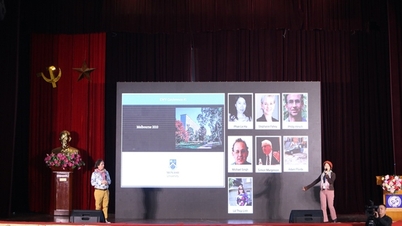
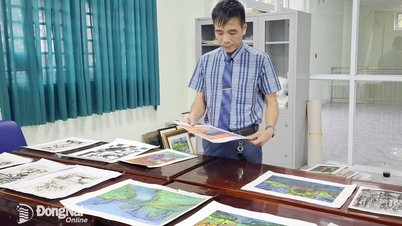

















Comment (0)